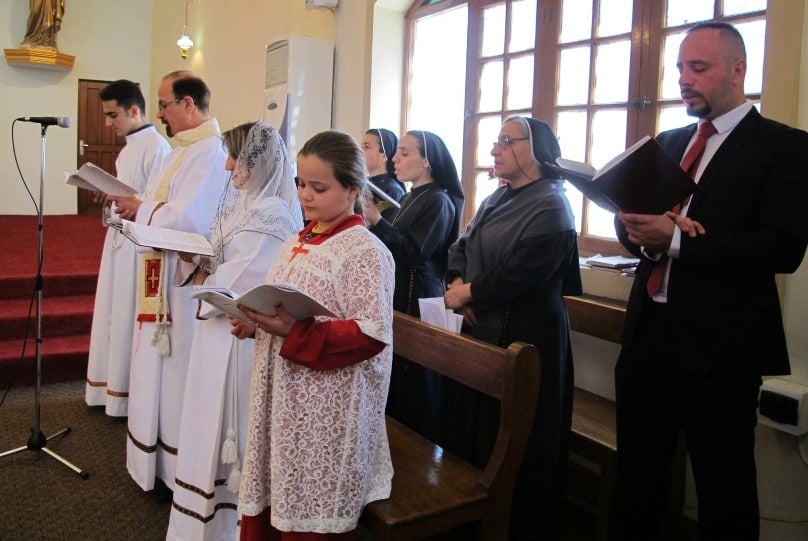
The patriarch of the Chaldean Catholic Church has called upon Iraq’s president to veto a law that will force some Christian children to convert to Islam.
The Assyrian International News Agency reported that Chaldean Patriarch Louis Sako of Baghdad met Iraqi President Fuad Masum on 6 November and asked him to reject a new national charter approved by the Assembly of Deputies on 27 October.
Religious minorities in Iraq, including Christians, oppose the charter because it demands that children under the age of 18 must become Muslims if their father converts to Islam or if their mother marries a Muslim.
Patriarch Sako told the president that the charter violates the sections of the Iraqi constitution that guarantees freedom of religion and conscience, the news agency reported. He urged the president to return the charter to parliament for modifications instead of signing it into law.
He later issued a statement denouncing the charter as “contrary to human rights standards and international treaties” and threatened to appeal to international authorities if it were enshrined into law.
Aid to the Church in Need, a Catholic charity helping persecuted Christians, said President Masum has until the end of November to either approve the law or to reject it, but if he declines to sign it within that time frame the charter will pass into law by default.
A 7 November report on the website of the Assyrian International News Agency said President Masum acknowledged that the law included constitutional violations and said he would seek a solution that was acceptable to all parties.
After the meeting, the patriarch sent a statement to Asianews, a Vatican news agency, in which he said the charter is “unacceptable”.
“This norm is one of the most discriminatory, because it shows a total disregard for the values of the civilisation of Iraq and against those who are considered to be among the first citizens of this country,” he said in the statement published online on 9 November.
“All this is a threat to the unity of the nation, as well as social balance, religious pluralism and the principle of acceptance of the other in their diversity, with their unique situation and common life goals,” Patriarch Sako said.
“We want to assert the principle that the child should keep their religious affiliation, so that he or she can freely decide their faith, according to belief, when they come of age,” he continued. “After all, religion is a matter which concerns only the relationship between God and man, and should not be bound by any obligations.”
He added that, “in case of application of this law, we will make our voice heard at the international level and we will ensure that the Assembly of Deputies must respond about this before the international tribunal”.
On 3 November, Chaldean Bishop Rabban Al-Qas of Amadiyah and Zakho, a diocese in the Kurdish territory of Iraq, predicted that the charter would have the effect of accelerating the exodus of Christians from the country.
“We are facing a genocide in a country that knows only death and liberticidal laws,” Bishop Al-Qas told Asianews.
“It is not just a political project,” the bishop said. “There are also traces of an Islam that wants to eliminate minorities … If you change your religion, it will be forever.”
Besides Christians, the charter is also opposed by the Yezidi, Mandean, Kakai and Bahai religious minorities. Minorities had proposed an amendment to the charter, but it was rejected by the Iraqi parliament, prompting minority religion members to walk out of the legislative chamber in protest.
